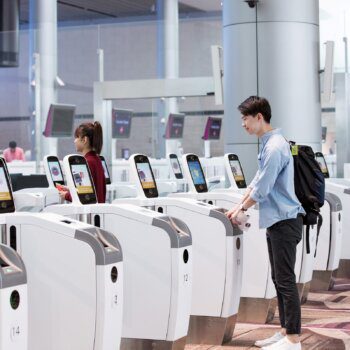The more time passes since the days of lockdown and mandatory distributed working, the more I realize how many organizations are lacking in ambition and vision in this area.
A growing number of companies seem determined to return to the how they worked before the pandemic, mistakenly believing the myth that having the workforce all in one place brings some kind of advantage, that it somehow drives innovation. In doing so, they often alienate workers who, in some cases, had already been learning for more than two years how to do their job optimally from home or elsewhere, and who in many cases, already accustomed to improving their performance under these conditions, do not see any value at all in returning to traffic jams and the office.
At the same time as more and more companies persist in their culture of control, extending it by installing bossware on the computers of employees who work from home, some others, unfortunately a minority, are realizing that forcing their employees back to the office is a mistake, and that innovation actually has very little to do with physical contact, and has much more to do with the ability to devote time to it. Employees who are overloaded with work will adopt survival mechanisms: they will dedicate themselves to it, and will disconnect as soon as they finish, a much more marked effect if, in addition, you intend to link it to specific hours. Innovation does not happen from 9 to 5, and believing that workers forced to stay in a certain place during those hours are going to be more innovative than others who work from wherever they want and in a culture of trust is simply stupid.
Do you want to build or reinforce an innovative culture in your organization? Then stop with the absurd myths about being on-site and start thinking in a more evolved way. Some of the most innovative companies in the world give their employees absolute freedom over where and how they want to work, and they are not alienated: it just works. Innovation happens, first and foremost, when people organize themselves, working where they want and how they want, not when they are locked into an Industrial Revolution-era workshop. Innovation needs commitment. Innovation has nothing to do with spending money on foosball tables, beer kegs or massage chairs. It is the product of a culture. And if you want to get that culture, the philosophy of control simply doesn’t work. Subjected to a culture based on control, people don’t innovate: they just does their job.
The problem, as said, is a lack of ambition. Some managers still see videoconferencing and asynchronous work tools such as document sharing, messaging systems, while others see them as a “pandemic problem”, which is highly limiting. These kinds of people weren’t able to learn how to use those tools during lockdown due to their mindset. You want to innovate? Then don’t limit yourself. The tools available allow you to not only innovate, but to create strong and very productive relationships between people in the organization, as long it’s done properly.
First of all, you have to get your employees to get the most out of those tools. Videoconferencing is not about appearing on screen looking dull, with a wall behind you and the edges pathetically out of focus while a halo is generated around you every time you move. At this point, that is unforgivable and reflects a mind-boggling level of laziness. You shouldn’t take part in a distributed meeting until you have learned how to light yourself properly, how to operate a virtual camera, how to set up a decent camera, a second monitor and microphone, and how to use a green screen — at the very least. My video conferences at the beginning of the pandemic were nothing like the ones I do now, and above all, I have achieved one thing: I feel very comfortable when I do them.
In fact, I have created a paradox: I am more productive in a videoconference meeting than in a face-to-face one. I have access to more materials, I can show them more easily and comfortably than if I am with those people in the same room, and also, the meeting tends to be shorter. The change is huge… but the vast majority of the people I meet, with a few honorable exceptions, still have the pathetic look of someone who lacks ambition in that regard. They haven’t changed since the beginning of the pandemic.
There are people in innovative companies who have never met their colleagues or their boss. And it’s no big deal. They work perfectly well from wherever they want, they are happier, they have perfectly productive meetings and they innovate. I myself work with several people I have never seen in person, and yet I have a perfectly complete professional relationship with them, I feel like I know them, we talk on many occasions about topics that are not strictly work-related, we tell jokes, we laugh, we relax, and we feel comfortable working. To think that this is impossible is simply a lack of ambition. Banging on about physical contact only reflects one thing: that some poor little bosses feel that when workers are not in the same physical place as them, they cannot control them.
Want to innovate? Then teach people to work comfortably from wherever they want. Abandon the culture of control and replace it with one based on trust. Innovation requires that, trust, diversity of experiences and visions, and it is enriched with the right tools and attitudes. If you don’t know how to do it or don’t understand it, let someone else do it, because your insistence on going back to the office to work as before is going to do your company more harm than good. Soon, you will be a “company of the past” that fewer and fewer qualified people will find attractive to work for.
We have had two years to learn, but many managers have not been able to do so. So much the worse for them. As younger generations mature, who understand work differently, they will slowly be sidelines. They will become dinosaurs. And in many cases, their companies with them.





























